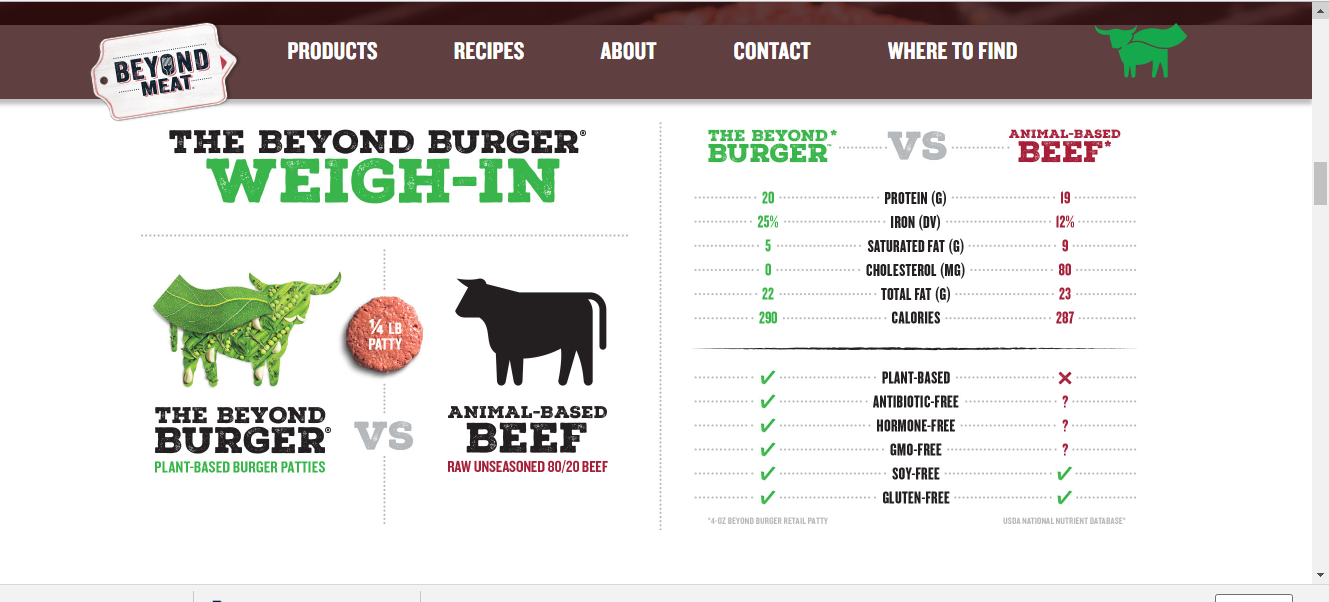Getting To the Meat of the Matter

From EcoWatch:
The mandate, which came into effect on Tuesday, prohibits companies from “misrepresenting” products as meat if they are not from “harvested livestock or poultry.” The measure was approved by the legislature in May and signed by former-Gov. Eric Greitens on June 1. Violators could be fined $1,000 and face imprisonment for a year, according to USA TODAY. The initiative was backed by the state’s pork producers, the Missouri Farm Bureau and the Missouri Cattlemen’s Association. “The big issue was marketing with integrity and … consumers knowing what they’re getting,” Missouri Cattlemen’s Association spokesman Mike Deering told USA TODAY. “There’s so much unknown about this.”
“The big issue was marketing with integrity…” Really? How many complaints of deceptive advertisement have been filed to date in the entire country? Answer: Zero.
“There’s so much unknown about this.” This is an attempt to protect the consumer against a potentially dangerous product? Could anything be more disingenuous? See below.
The plant-based meat industry has an interest in deceiving customers? Of course not. The only reason people buy their products is they don’t want to eat animal flesh.
The motive here isn’t simply suppressing competition? Is there anyone in the entire state of Missouri stupid enough to believe that?
In addition to the completely dishonest claims of the Missouri Cattlemen’s Association, it’s unlikely that their position will stand up in court. The title of this post is more that just an attempt at cleverness; it’s a reminder that the English word “meat” has meanings that have nothing to do with animal flesh: pistachio meat, the meat of the discussion, etc.
However, that’s a moot point if there ever were one. The people who make the Impossible Burger and the Beyond Burger have no interest whatsoever in calling their product “meat.” The reason they can charge $10/pound for their product in a $2.7 billion industry, growing like a weed, is that it entirely bypasses the purveyors of animal cruelty, heart disease and deforestation.



Craig,
As usual, you fail to list all the harmful synthetic chemical ingredients in artificial meat, while leaving out important elements such as Vitamin B12 which can only be obtained by eating real meat.
I just Googled: “harmful synthetic chemical ingredients in artificial meat,” and could even a suggestion that you’re right here (not that this shocked me). Can you link to some paper on this, please?
Other sources of B12 include fish, poultry, eggs, milk, and milk products like cheese.
Craig,
B12 can only be from the consumption of living organisms. Although animal products such as yeast enriched, milk, eggs and cheese can posses traces of B12, in general humans can only obtain and metabolize B12 in useful quantities by eating the flesh of animals.
Red meat, Beef, Pork, Lamb, and Goat are all excellent sources of B12, and to a lessor extent, so is poultry and rabbit, although any animal flesh will provide B12.
Fish and sea food are fairly low in some nutrients, but high in others, which is why a balanced diet including meat is recommended.
“harmful synthetic chemical ingredients in artificial meat,”
I think I’ve already covered this in past posts. In fact, I posted an extensive list of information sources, including an analysis of all the ingredients in both meat substitutes, which included such products as MSG etc, if you refer to your archives archives I’m sure you’ll discover the long list I posted.
Although I agree that meat is important, I think that synthetic meat is also important. It has a lot less cholesterol and fat. Some people eat way too much cholesterol and ruin their arteries, and fat can clog arteries causing heart attacks.